Could these elections bring about the end of Netanyahu’s rule? Why isn’t anyone talking about half a century of occupation? And do these elections even matter, anyway? +972 and Local Call writers open up on what’s at stake this time around.
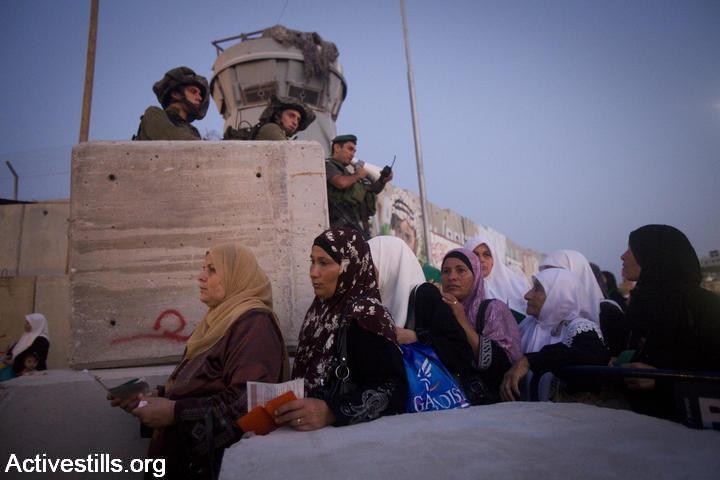
Reading much of the Israeli and international press, one might get the impression that the upcoming Israeli elections are solely a referendum on the last 10 years of Netanyahu’s rule. That might be partially true, but there are no few number of issues that aren’t being talked about, and there are stakes — and stakeholders — not being accounted for by most observers.
In order to better understand where our attention should be, I spoke with a number of writers from both +972 Magazine and Local Call, representing various positions in Israeli and Palestinian societies, about the issues they think we need to be talking about, whether these elections matter, and why nobody is talking about the occupation.
But first, what everyone is talking about — Netanyahu. The mainstream consensus holds that these elections are a referendum on the prime minister, and his only serious challengers’ primary platform consists of very little beyond ousting him.
There is no such consensus, however, on what the consequences of ending the reign of Israel’s second-longest serving prime minister would be.
For Amjad Iraqi, there is a danger for the anti-occupation movement in simply replacing Netanyahu, often viewed in progressive and international circles as the man responsible for everything they object to about Israel, with someone seemingly more palatable.
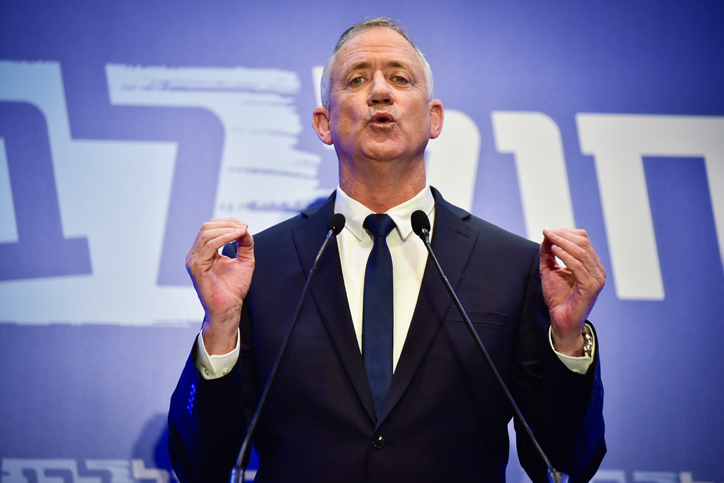
“Part of what has helped expose people to the facts on the ground here and understanding the depth of the occupation and racist policies is Netanyahu, his anti-democratic trends, and his similarities to Trump and other authoritarian leaders,” Iraqi explains.
A victory for Netanyahu rival Benny Gantz, viewed as stately and more moderate than the prime minister, could lead to the erosion of some of the international pressure on Israel today. “Once that pressure is lifted, you lose a lot of the hard work that has been [done over] the past 10 years.” But Netanyahu the individual leader isn’t the problem,” Iraqi adds. “It’s the [entire] Israeli political spectrum.”
For Noam Sheizaf, Netanyahu’s downfall could be a watershed moment for Israeli politics. The prime minister’s reign has relied on “a powerful coalition between ultra-Orthodox, national-religious, the old right-wing elite, and Mizrahi Jews and Russian immigrants from the periphery of Israel. This is the coalition that kept the right in power for a very long time. If it breaks apart after Netanyahu, that will be very significant.”
Yet while a victory for centrist parties, and Gantz in particular, won’t necessarily lead to the reversal of a decade’s worth of Netanyahu policies or an end to the occupation, a victory for the right could lead to things getting far worse, Orly Noy warns. “Their first order of business will be implementing the Jewish Nation-State Law to target Palestinian citizens of Israel,” Noy says. “If the right wins once again, it’s a totally different ballgame for Arab citizens.” (Full disclosure: Noy is running in the upcoming Knesset elections on behalf of the Balad party).
So what are Israeli citizens actually talking about this time around, apart from Netanyahu’s legacy and looming corruption cases? Dahlia Scheindlin says that Netanyahu’s legal troubles are, finally, pushing Israelis to start taking seriously the defense of democratic values.
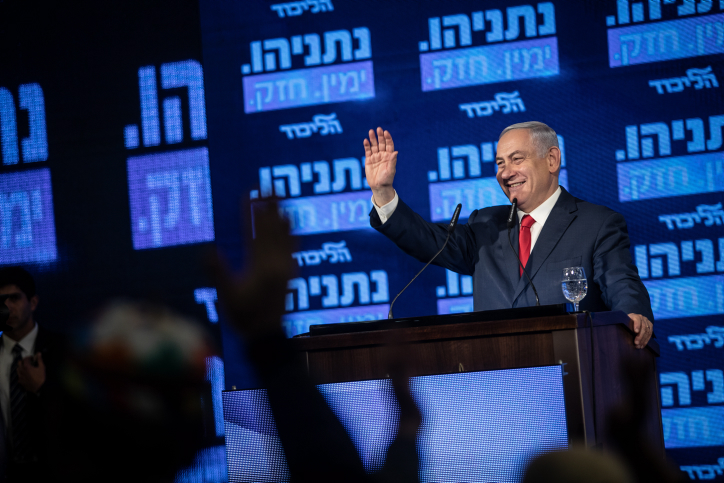
“[Democratic values] are not necessarily front and center, but they are linked to the issue of corruption,” Scheindlin says. “Netanyahu’s corruption cases have highlighted the role of the justice system and the attempts to undermine it by Netanyahu and the previous government.” For Scheindlin, just the fact that democratic norms are on people’s minds — and that newspaper columnists are actually writing about the issue — should not be written off.
For Eli Bitan, one positive note about the current election cycle is that Israelis are finally talking about the role religion and religious authorities play in their lives. Separation of religion and state was once the bread and butter of secular Tel Aviv liberals with anti-Orthodox views that often bordered on hate. Today, Bitan says, we’re seeing a real movement toward progressive and secular values in many sectors of the Jewish-Israeli public, including among religious communities.
“Look at the national-religious [parties],” he says. “We see [these parties progressing] on many issues, ranging from LGBTQ rights, to feminism, to social justice issues. Only when it comes to the Palestinian issue do we see no change.”
Another positive development, Noy adds, is the way Israelis are waking up to the grave matter of corruption in their society and politics — and the opportunity that presents. “Talking about corruption creates room for optimism,” she explains. “Corruption is a sickness, and democracy cannot exist when corruption is such an integral part of it.”
In her eyes, both regional and local developments over the past decade — such as the Arab Spring and the 2011 social protest movement — has led to the development of a public consciousness about corruption that simply didn’t exist prior. “Israel doesn’t exist in a bubble. These events had an effect — all of a sudden corruption, which had always been there, came under a spotlight.”
When asked about the one issue most Israelis aren’t talking about this election cycle, the answer was unequivocal: Israel’s half-century military rule over the Palestinians in the occupied territories. According to Sheizaf, the two leading parties, Netanyahu’s Likud and Gantz’s Blue and White party, have been “deliberately blurring the Palestinian issue.” The rest of the parties, he says, are simply reverting to the old slogans, rather than offering new ideas on the Palestinians’ future.
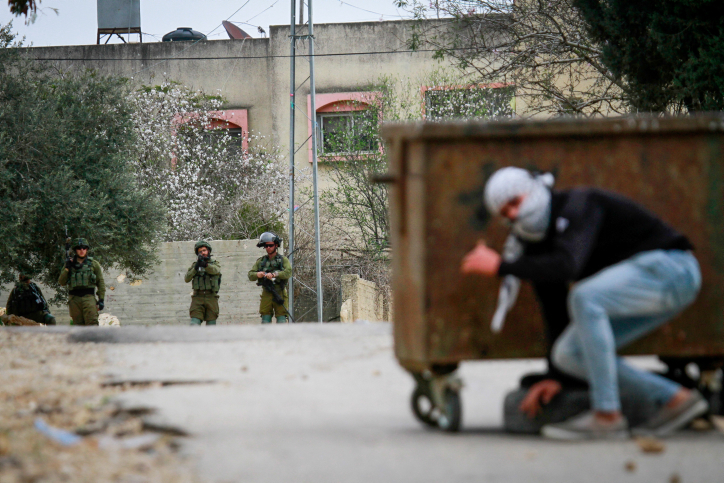
“Everyone is making a fuss about what Netanyahu said or didn’t say, or what Gantz did or didn’t do. No one is talking about Gaza,” says Bitan. “The fact that we’re seeing a party made up of generals becoming the hope of the Israeli left is absurd.”
With the growing irrelevance of a two-state solution, Scheindlin points out that while some parties know how to talk about a peace process, none are actually coming up with solutions. “There needs to be an alternative to the two-state solution such as a two-state confederation. That means a solution based on open borders, residency options without citizenship for refugees and some settlers, open Jerusalem, and shared institutions,” she says.
And while an end to the occupation and resolving the conflict is still a near-consensus issue in the international community, Israelis don’t seem to mind that the topic is completely absent from the current election cycle. As far as Israelis are concerned, says Iraqi, the occupation is simply not a major issue in their lives. “Israelis don’t incur a substantial enough cost to do something about it,” he explains. “There is nothing almost at stake – so why bother bringing it up?”
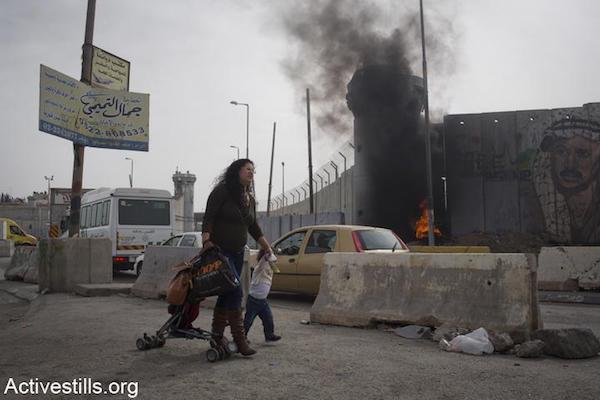
Scheindlin puts it in even starker terms: “The occupation isn’t on the agenda because nobody thinks it’s a vote winner. Most people think it’s a vote loser. And in fairness, it’s so off the agenda that most people don’t have an articulate way of resolving the conflict.”
As long as the occupation goes unchallenged, Sheizaf adds, Israeli politicians will continue to deal solely with internal issues — that is, those pertaining mostly to Israel’s Jewish public. “The status quo is a relatively convenient option in terms of Israeli Jewish society, and there is no significant challenge to the status quo from the world nor from Palestinian society, which is divided and engaged in its internal rivalries,” he says.
Noy sees things differently. The left, including the radical left, shares a large portion of the blame. “For many years we were naïve enough to think that we had a problem of semantics rather than an ideological gap between the left and the Israeli Jewish public,” she says. “This was a terrible mistake. In effect, the left wanted to talk about justice and equality in order to win credibility while remaining silent about the occupation and the rights of Palestinians. Rather than standing up for its principles and thinking about how to pragmatically implement them, the left effectively legitimized its own delegitimization.”

